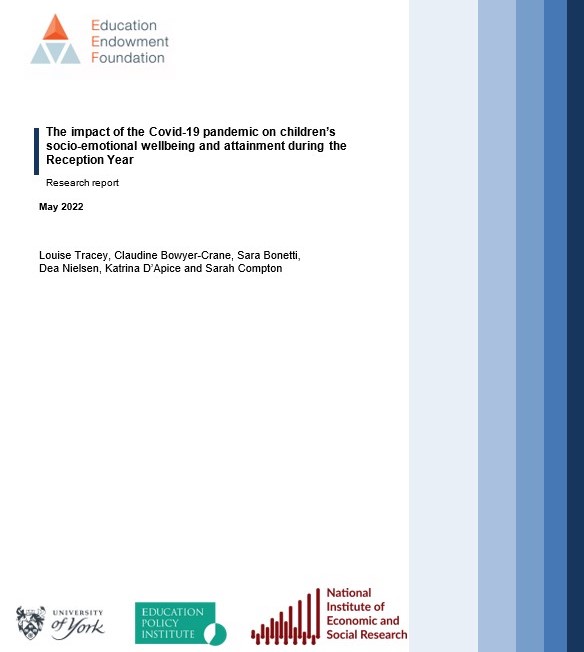Four- and five-year-olds were less likely to meet the expected levels of development in 2021 than before the pandemic, a new report from the University of York, National Institute of Economic and Social Research (NIESR) and the Education Policy Institute (EPI) reveals.
Commissioned by the Education Endowment Foundation (EEF) as part of a major research project, the report assesses the impact of the Covid-19 pandemic on pupils beginning primary school in September 2020. It examined the factors influencing socio-emotional wellbeing and educational outcomes, including the experience of the pandemic this year, home learning activities, family demographics and child socio-emotional wellbeing.
Key findings
Using a sample of Early Years Foundation Stage data, the researchers assessed the impact of the pandemic on the development of children who were in Reception class for the school year that ran from 2020-21.
- The proportion of children reaching the expected levels in all areas – communication and language, physical development, literacy, maths, and personal, social and emotional development – was 59% in 2021, compared to 72% for the 2019 cohort.
- This difference is equivalent to, on average, three more children in every classroom not reaching the expected levels by the end of the school year.
The findings are supported by surveys of schools asking them about their pupils’ development.
- When this cohort of children started school in 2020, over three-quarters (76%) reported that they needed more support than those starting school before the pandemic.
- This had fallen to just over half (56%) by the end of the school year.
You can read the full report here.


